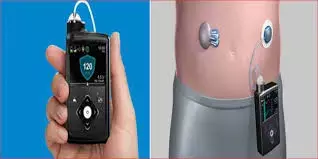- Home
- Medical news & Guidelines
- Anesthesiology
- Cardiology and CTVS
- Critical Care
- Dentistry
- Dermatology
- Diabetes and Endocrinology
- ENT
- Gastroenterology
- Medicine
- Nephrology
- Neurology
- Obstretics-Gynaecology
- Oncology
- Ophthalmology
- Orthopaedics
- Pediatrics-Neonatology
- Psychiatry
- Pulmonology
- Radiology
- Surgery
- Urology
- Laboratory Medicine
- Diet
- Nursing
- Paramedical
- Physiotherapy
- Health news
- Fact Check
- Bone Health Fact Check
- Brain Health Fact Check
- Cancer Related Fact Check
- Child Care Fact Check
- Dental and oral health fact check
- Diabetes and metabolic health fact check
- Diet and Nutrition Fact Check
- Eye and ENT Care Fact Check
- Fitness fact check
- Gut health fact check
- Heart health fact check
- Kidney health fact check
- Medical education fact check
- Men's health fact check
- Respiratory fact check
- Skin and hair care fact check
- Vaccine and Immunization fact check
- Women's health fact check
- AYUSH
- State News
- Andaman and Nicobar Islands
- Andhra Pradesh
- Arunachal Pradesh
- Assam
- Bihar
- Chandigarh
- Chattisgarh
- Dadra and Nagar Haveli
- Daman and Diu
- Delhi
- Goa
- Gujarat
- Haryana
- Himachal Pradesh
- Jammu & Kashmir
- Jharkhand
- Karnataka
- Kerala
- Ladakh
- Lakshadweep
- Madhya Pradesh
- Maharashtra
- Manipur
- Meghalaya
- Mizoram
- Nagaland
- Odisha
- Puducherry
- Punjab
- Rajasthan
- Sikkim
- Tamil Nadu
- Telangana
- Tripura
- Uttar Pradesh
- Uttrakhand
- West Bengal
- Medical Education
- Industry
Hybrid closed-loop systems cost-effective option for blood sugar control in T1D

Hybrid closed-loop therapy is likely to be cost-effective compared with multiple daily injections and capillary glucose for Type 1 diabetes patients according to a study published in Diabetes Technology & Therapeuticson November 9, 2020.
Technologies have been implemented as early as the 1970s in an effort to control blood sugar levels. Since then, there has been rapid development and production of devices and applications to facilitate more accurate insulin delivery and improve the precision and ease of measuring blood sugar levels. However, new technologies can be expensive and often need to be privately funded. Hybrid closed-loop systems may offer improved HbA1c levels, more time-in-range, and less hypoglycemia than alternative treatment strategies. However, it is unclear if blood sugar improvements offset this technology's higher acquisition costs. For this purpose researchers evaluate the cost-effectiveness of a hybrid closed-loop system in comparison with the current standard of care, comprising insulin injections and capillary glucose testing among adults with type 1 diabetes.
Researchers performed cost-effectiveness analysis using decision analysis in combination with a Markov model to simulate disease progression in a cohort of adults with type 1 diabetes. They compared the downstream health and economic consequences of hybrid closed-loop therapy with the current standard of care. They analysed the published studies to determine transition probabilities and utilities. A lifetime horizon was considered, with annual discount rates of 5% applied to future costs and outcomes. The major outcome assessed was costs and cost-effectiveness
After the analysis, researchers found the use of a hybrid closed-loop system resulted in an incremental cost-effectiveness ratio of Australian dollars (AUD) 37,767 per quality-adjusted life year (QALY) gained which is below the traditionally cited willingness to pay a threshold of $50,000 per QALY gained in the Australian setting. Upon sensitivity analyses that varied baseline glycemic control, treatment effects, technology costs, age, discount rates, and time horizon they found the results to be robust.
By considering from the perspective of the Australian health care system this study suggests hybrid closed-loop therapy is cost-effective when compared with multiple daily injections and capillary glucose testing in patients with type 1 diabetes.
Medical Dialogues Bureau consists of a team of passionate medical/scientific writers, led by doctors and healthcare researchers. Our team efforts to bring you updated and timely news about the important happenings of the medical and healthcare sector. Our editorial team can be reached at editorial@medicaldialogues.in.
Dr Kamal Kant Kohli-MBBS, DTCD- a chest specialist with more than 30 years of practice and a flair for writing clinical articles, Dr Kamal Kant Kohli joined Medical Dialogues as a Chief Editor of Medical News. Besides writing articles, as an editor, he proofreads and verifies all the medical content published on Medical Dialogues including those coming from journals, studies,medical conferences,guidelines etc. Email: drkohli@medicaldialogues.in. Contact no. 011-43720751


